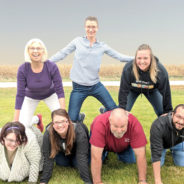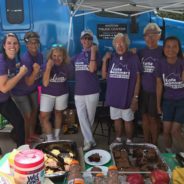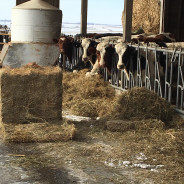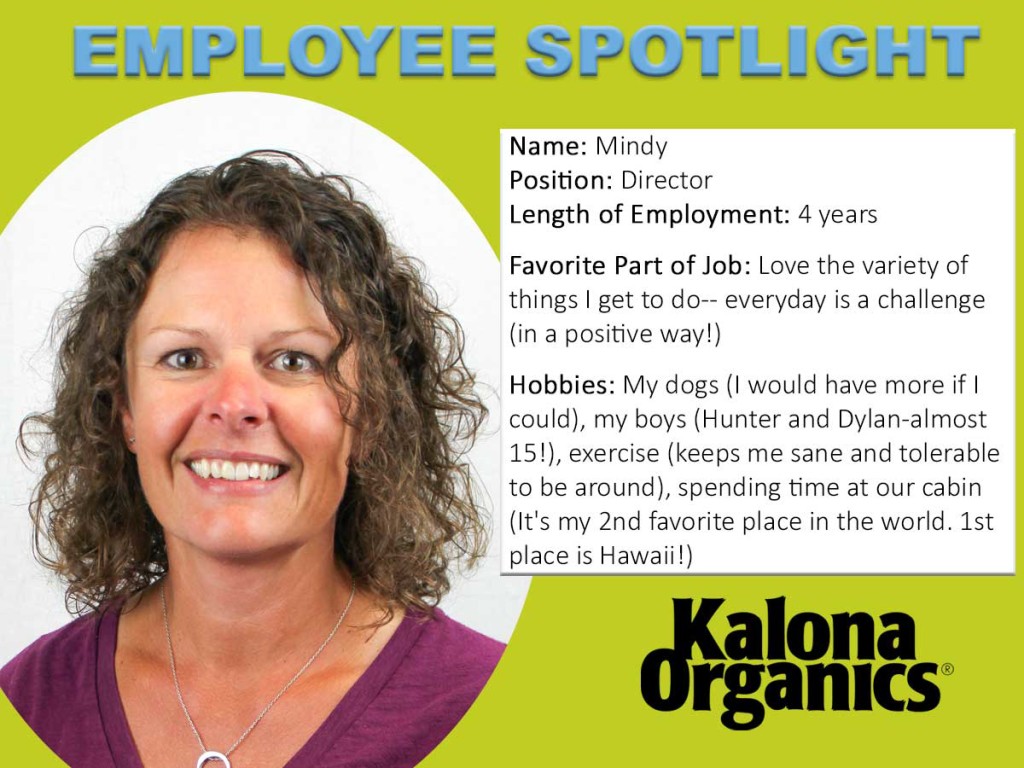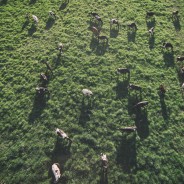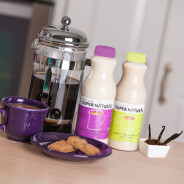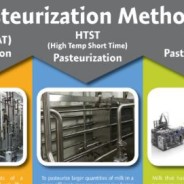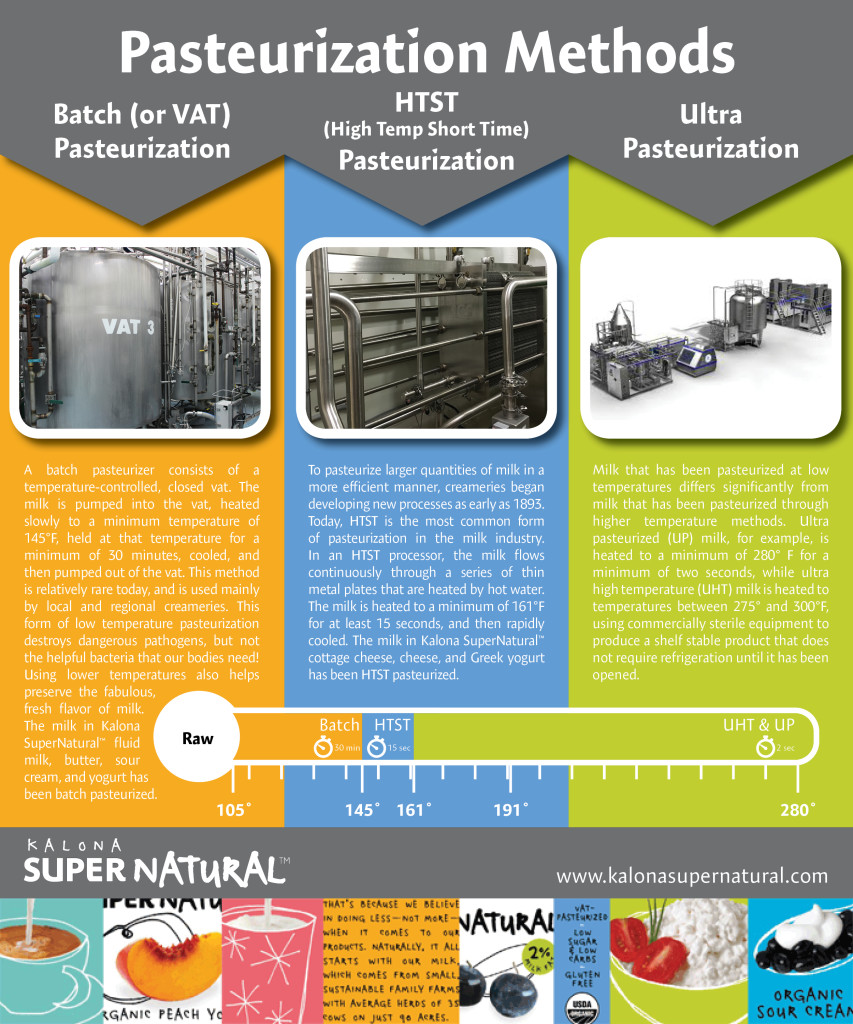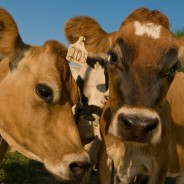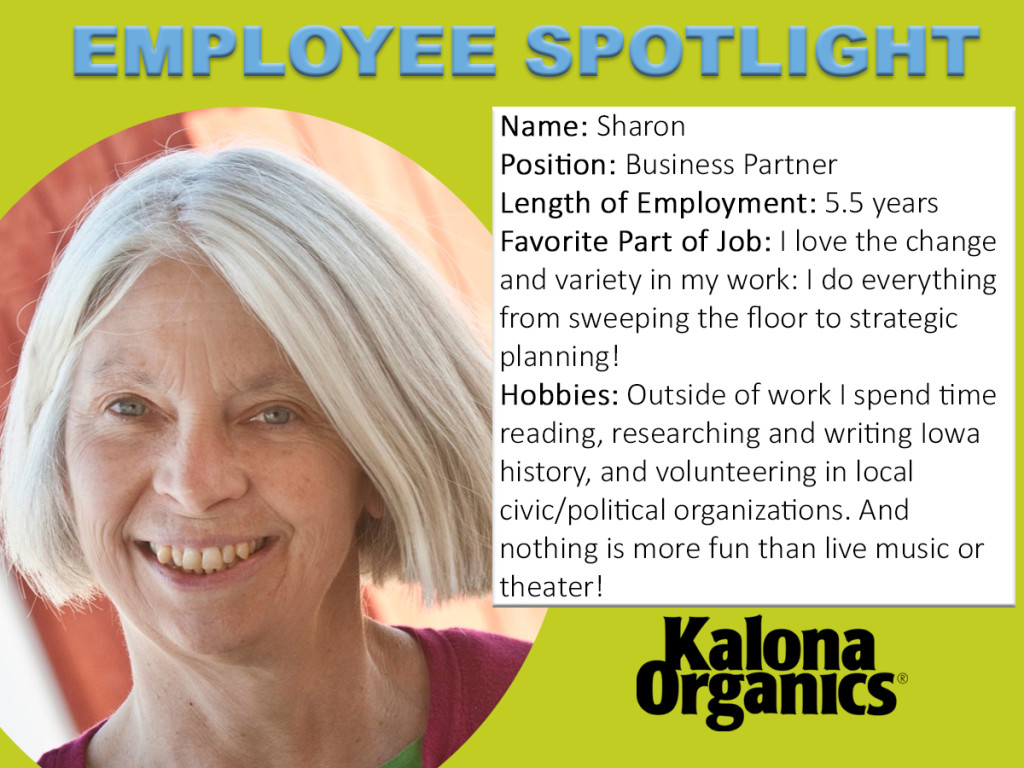Paying it Forward
We are so blessed to work with wonderful suppliers, distributors and retailers. We are also extremely lucky to be located in Kalona, IA, where there are many charitable organizations, superior educational facilities, and wonderful people.
2018 Recap
Supporting our local community and paying it forward are part of our mission. We were pleased to support the following causes in 2018:
- Iowa State Extension
- Johnson County Crisis Center
- Longfellow School
- Irving Weber School
- Iowa City CVB
- Iowa Mennonite School
- Bright Futures Chiropractic
It Doesn’t Stop There!
Kalona Organics is a member of the Open Gates Group Family. They also support the community by giving back. Check out their 2018 recap.
Kalona Organics Donates Chocolate Milk to Iowa Valley Habitat for Humanity’s Fundraiser
Iowa Valley Habitat for Humanity Hosts Women Build Fundraiser During RAGBRAI 2018
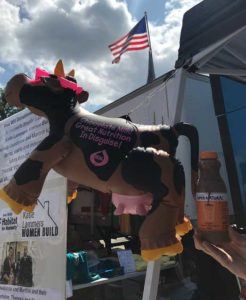
The Iowa Valley Habitat for Humanity’s Women Build program hosted a booth during the Register’s Annual Great Bicycle Ride Across Iowa (RAGBRAI), on July 27-28, 2018. To support this worthy non-profit, Kalona Organics donated Kalona SuperNatural Organic Chocolate Milk to their breakfast fundraiser. The Women Build program raised o,ver $3,000 in free-will donations at the event, which will support building a home for family in need.
What is the Women Build program?
Developed by Habitat for Humanity, Women Build is a way to engage women in construction. Every year, the program raises money, gathers donations and recruits volunteers to construct a home for an approved Habitat applicant. The Women Build program builds energy efficient homes ensuring that the household pays no more that 30% of their income.
Supporting Our Community
Kalona Organics was formed in 2005 and our mission is to develop brands that expand markets in the natural/organic food community. Supporting great causes like Habitat for Humanity is at our core. “Kalona SuperNatural products are the highest quality dairy products on the market. We are glad to share them with the community!,” said Sara Rissi, Marketing Manager.
Kalona Organics Facilities Now SQF Certified
We are excited to announce that all four of the facilities we work out of are now Level 2 Safe Quality Food (SQF) certified. These four facilities include: Farmers Creamery, makers of Kalona SuperNatural bottled milk and butter products; Frytown Warehouse & Distribution facility; Kalona Farms, milk receiving facility; and Kalona Creamery, retail shop and future cheese production facility.
Food Safety and Quality
Food safety has always been a priority for us. The SQF certification is proof that we comply with regulatory requirements and demonstrate a commitment to food safety. The SQF program is endorsed by the Global Food Safety Initiative (GFSI) and is recognized internationally.
“Food safety and quality have always been our top priorities and the SQF certification is just one more way we can show that commitment to our customers,” said Sue Gessner, the managing partner of Farmers Creamery. “SQF certification allows our family of companies to reach a new level. It will open the doors to several new business opportunities, especially in the industrial ingredient industry.”
The Certification Process
We started the rigorous SQF certification process in early 2016 and spent nearly two years creating the extensive documentation required by SQF food safety policies and procedures. “I am so proud of our employees and what they have accomplished over the last few years,” said Bill Evans, CEO. “This certification requires a company-wide commitment in order to be successful. Becoming SQF certified was our top goal for 2017 and we are excited about what the future holds!”
Kalona SuperNatural Producer Spotlight
My name is Cody Rasmus, Farm Liaison for Kalona Farms, the company that procures milk for Kalona SuperNatural products. Recently, I had the opportunity to sit down with a couple of our producers–Merle and Ryan Borntrager–a father and son team. Both men have been milking cows and farming their whole lives. In this producer spotlight we feature Merle’s story. Merle started milking with his father as a young boy and then moved to his current farm over two decades ago. His family transitioned to organic when they began shipping milk to Farmers Creamery in 2006.
Producer Spotlight: Life on the Farm
Merle and the rest of the family wake up before the sun and start milking. This is the only way of life that Merle has ever known and he enjoys it! His only son, Ryan, has taken interest in milking and farming as well. Merle is pleased that Ryan decided to follow in his footsteps and farm. With another family member helping full time it allows Merle to teach Ryan how to sustain the small, family farm. As might be  expected, Merle says Ryan is a little more ambitious about growth and opportunities than he is. They keep each other in check when it comes to new ideas. I asked Merle why he enjoys milking and farming so much. He said the main thing is that the whole family is involved. Even his youngest daughter, at the age of 5, is out helping with milking duties and chores. He said she gets to take care of the baby calves and bottle feed them. Another reason Merle enjoys this lifestyle is because he is his own boss. This allows him flexibility with his job. Finally, he likes the job security. The cows and land will always be there if properly cared for.
expected, Merle says Ryan is a little more ambitious about growth and opportunities than he is. They keep each other in check when it comes to new ideas. I asked Merle why he enjoys milking and farming so much. He said the main thing is that the whole family is involved. Even his youngest daughter, at the age of 5, is out helping with milking duties and chores. He said she gets to take care of the baby calves and bottle feed them. Another reason Merle enjoys this lifestyle is because he is his own boss. This allows him flexibility with his job. Finally, he likes the job security. The cows and land will always be there if properly cared for.
The Cows and Farmland
Merle is farming ground that has been in his family for years, as well as new ground that they rent. The new ground allows for more opportunities and growth. The family ground surrounds their home, which makes it more convenient for their traditional lifestyle.
The Borntragers raise Holstein Dairy cows. He has milked Holsteins most of his life and does not see himself ever milking anything different. They calve mainly from early fall all the way until either April or May. The Borntragers have good luck with the cows birthing on their own, however there are times that the family has to assist during the process.Their main goal is to give both mom and baby the best care!
A Borntragers’ Normal Day of Milking
The Borntrager family is typically up and in the barn by 4:30 am to prepare for milking. That was very impressive to me! Merle does a lot of the milking duties while Ryan starts feeding the cows stored hay. The other 7 family members help out with whatever is needed to get the job done. Even the youngest daughter helps out! They carry all of the milk to the bulk tank with 5 gallon vacuum sealed pails! Needless to say, they have to make several trips! On the Borntrager farm, the milking is all done in a tie stall barn, not a parlor. They milk one group of cows, release them and bring in the next group. This whole process takes the family approximately 2 ½ to 3 hours to complete. Then, at 4:30 pm the family starts this whole process over again! They enjoy doing it and can’t imagine doing anything else!
Grass-Fed Dairy Farms: Good for the Environment
One of the most wonderful scenes in Kalona, Iowa, is the sight of dairy cows grazing on beautiful green pastures. Kalona is home to many Amish organic dairy farms, so these picturesque views are a common site. On these farms, the cows eat a significant portion of their daily ration from pasture. Our producers know that cows do best when they can harvest their own feed from the pastures around them, so many of them exceed the 120 day minimum. 
Though these views are picturesque, a grass-based dairy farm is more than just good looks. Studies have shown that milk that comes from cows on grass has proven to be more healthy due to the higher CLA (Conjugated Linoleic Acid) content and a more balanced Omega 6:3 ratio. Other than the human health benefits, there is also a positive environmental benefit that can’t be overlooked. Pasture that is grazed with normal grass recovery times can mitigate the development and increase in organic matter. Organic matter that breaks down in a biological agricultural system (like what an organic dairy farm tends to be) leads to the formation of humus, a component of topsoil. Humus contributes to soil structural stability, water-holding capacity and nutrient availability. Humus has the potential to hold up to 20 times its weight in water. A 1% increase of humus in topsoil can result in a four-fold increase in water-holding capacity. Adequate topsoil and humus insulate these organic dairy farms against the extreme effects of drought, because moisture is stored in the soil so the roots can access it if needed.
Finally, topsoil and humus help manage excess water that runs into the soil. Instead of running off, these items help keep floods at bay. These pastures provide a slowing effect to a hard rain, helping keep the topsoil on the cropland in place instead of running off. Diverse pastures also provide habitat for beneficial insects that balance insect attacks on crops.
As you can see, pasture is a very helpful addition to any farm and an essential tool for farmers looking to diversify their operation. This milk is not only healthy, but it is wonderful for the environment.
Written by Phil Forbes, Farm Liaison for Kalona SuperNatural and Kalona Farms.
Kalona SuperNatural Introduces French Vanilla and English Toffee Half & Half
Kalona SuperNatural in excited to introduce two new flavors of organic Kalona SuperNatural half & half, French Vanilla and English Toffee! They work with small, sustainable family farms to provide delicious, certified organic half & half from pasture-grazed cows. The fresh cream and milk are gently processed so we can deliver your half & half in the most natural state possible. All you have to do is shake well and enjoy with your coffee!
- Non-Homogenized
- Grass-Fed
- Batch-Pasteurized
- Grade A
- No Stabilizers
- Made with Fair Trade Cane Sugar
Pasteurization: The Basics
The practice of using heat to extend the life of food dates to the Middle Ages, when wine and beer were heated to prevent them from souring. Thus, when Louis Pasteur developed the process of pasteurization in 1864, his goal was to lengthen the life of his favorite wine. Once it was discovered that pasteurizing milk not only lengthened its shelf life, but also destroyed deadly microorganisms that spread diseases, pasteurizing milk became a widespread practice in Europe, and slowly caught on in the U.S.
Reformers pushed for pasteurization in the U.S. in response to a growing public health crisis in the early 20th century: the spread of infectious diseases through unsafe “slop milk” produced in urban dairies that were located next to whiskey distilleries. In 1908, Chicago was the first city to require that all milk sold within its limits be pasteurized, and in 1924, the U.S. Public Health Service developed the Standard Milk Ordinance to assist states with voluntary pasteurization programs. By the late 1940s, all milk sold in the U.S. was required by law to be pasteurized. Historians agree that pasteurizing milk led to a significant decline in the spread of infectious diseases and the infant mortality rate in urban areas.
Pasteurization affects the taste and quality of milk in different ways. Learn more below!
Cows on Fresh Pasture: Spring 2016
Well, it’s spring time and you know what that means…fresh pasture! The water cooler buzz this time of year is all about “the flush.” This phrase refers to the time of the year when milk volumes, temporarily, shoot through the roof. Due to environmental factors, the flush happens at slightly different times each year. Here in Iowa, the flush is happening now!
What causes the flush?
Two things drive the increase in milk supply during the flush:
- Cows start feeding on lush, green grass.
- Cows also “freshen” or give birth to calves in the spring.
Watch the video below to see cows, from one of the local Amish farms we work with, grazing on fresh pasture for the first time in 2016!

